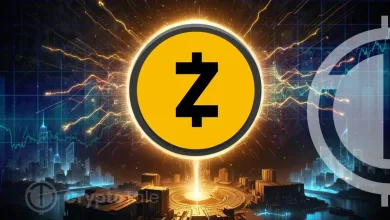Grayscale Files Spot AVAX ETF With SEC for Nasdaq Listing

- Grayscale seeks SEC approval to convert its Avalanche Trust into a spot AVAX ETF.
- Coinbase Custody will hold AVAX while BNY Mellon manages administration duties.
- The AVAX ETF aims to open new institutional paths toward Alt Layer 1 innovation.
Grayscale Investments submitted a registration statement to the U.S. Securities and Exchange Commission (SEC) on Friday, seeking to convert its existing Avalanche Trust into a spot Avalanche (AVAX) exchange-traded fund (ETF). According to the filing released on Monday, the proposed ETF will trade on Nasdaq and use the Avalanche cryptocurrency ticker. The fund is structured to provide investors with direct exposure to AVAX through traditional brokerage accounts.
Coinbase Custody has been named as the official custodian for the underlying AVAX, while BNY Mellon is set to act as the administrator and transfer agent. Under the terms of the S-1, authorized participants will conduct creations and redemptions in cash, with Coinbase providing prime brokerage services around AVAX custody and execution.
The filing explains that the trust will remain a passive vehicle that mirrors AVAX’s price and may reflect staking rewards once implemented. Grayscale added that if staking is introduced, up to 85% of the trust’s holdings could remain staked at all times. The issuer also confirmed that the trust would not use leverage, derivatives, or other financial strategies.
Avalanche’s Design Strengths and Institutional Expansion
Avalanche operates as a proof-of-stake layer-1 blockchain that boasts great throughput, sub-second finality, and an exclusive subnet architecture. These build AVAX as a blockchain for scalable dApps, programmable finance, and asset tokenization. The ETF filing further points out that staking considerations will be locked during the staking period and cannot be moved to other Avalanche addresses.
The SEC filing also revealed that once the ETF is approved, the trust will be converted into “Grayscale AVAX Trust ETF” upon listing on Nasdaq. This arose after Nasdaq filed a 19b-4 application in March 2025, seeking recognition to list the fund.
Grayscale first set up its Avalanche Trust in August 2024, providing accredited investors with exposure to AVAX. The move toward an ETF denotes the company’s intent to offer crypto products to retail and institutional investors on a wider scale. The endeavor dovetails with Grayscale’s continuing push into spot crypto ETFs, having made similar filings this year for XRP and Dogecoin (DOGE).
Related: Ether ETFs Surge to a Record of $2.85B While Bitcoin Trails
Regulatory Context and Broader Market Implications
With altcoin-based ETFs, the SEC preferred a more careful approach, delaying the decision on Grayscale’s proposals for Avalanche and Cardano ETFs in May 2025, with an extension put on the comment and rebuttal periods. Nevertheless, the filing of S-1 is merely another step by Grayscale to bring AVAX further to mainstream investors.
This is similar to many other inflows; spot Bitcoin and Ethereum ETFs have received billions of dollars in institutional capital since their approval. The higher-profile and more liquid nature of these ETFs has shifted the preference away from some of the older trust structures, such as Grayscale’s Ethereum Trust.
Grayscale’s corporate roadmap has advanced significantly in 2025. Founder Barry Silbert returned as chairman, and the company submitted confidential filings with the SEC for a potential initial public offering. The AVAX ETF filing reflects how the firm is repositioning for growth at a time when President Donald Trump’s administration is pushing for more favorable crypto regulations in the U.S.
Could Grayscale’s decision to push for a spot Avalanche ETF redirect institutional capital toward alt-layer-1 innovation? Can it also redefine how decentralized infrastructure competes with Bitcoin and Ethereum in the global markets?




